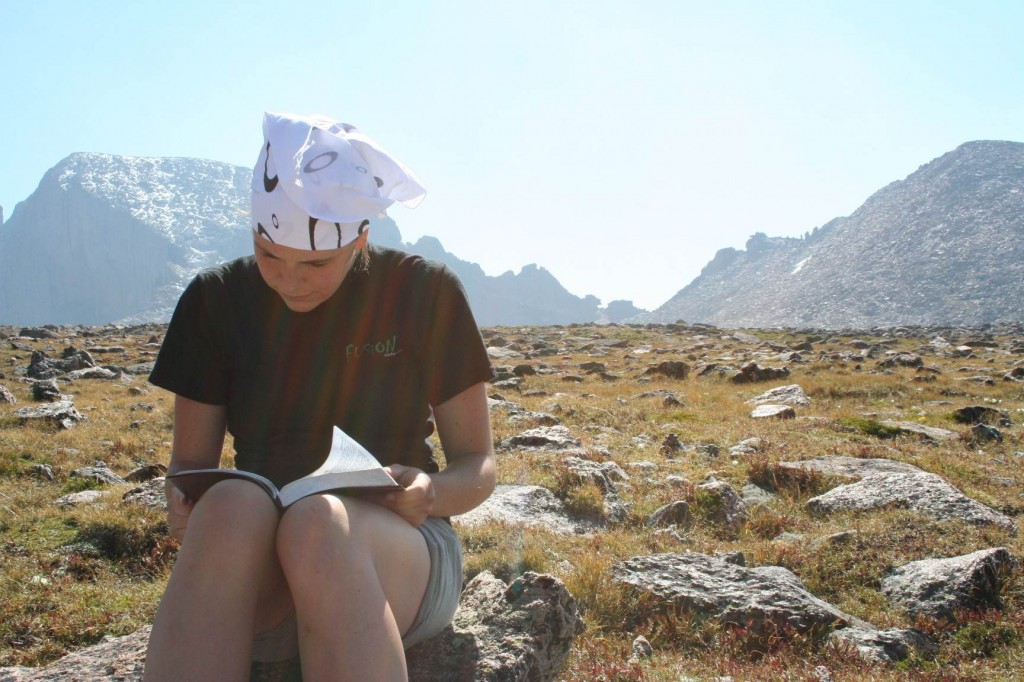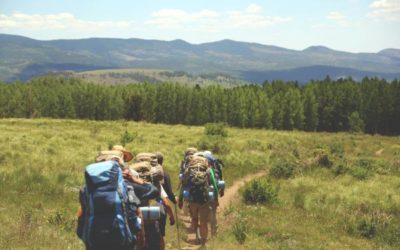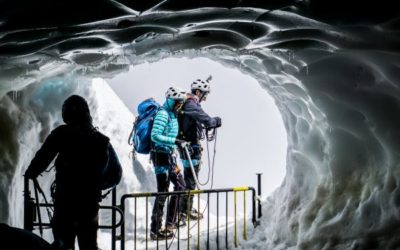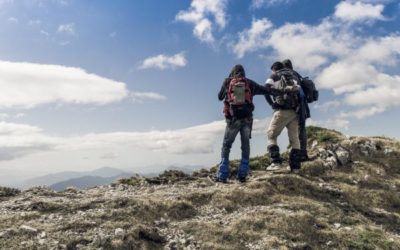This week as I’m preparing for a training tour in Estonia, Romania, Italy, and France, my good friend Joel Vermillion, a Missions and Adventure Pastor at Meadow Springs Church near Portland, Oregon, offers an insightful and practical post on a concern that many outdoor ministry enthusiasts are grappling with– leading outdoor adventures in a technologically connected world!
DENIAL DOESN’T SOLVE ANYTHING: WE LIVE IN A CONNECTED WORLD
When I started leading outdoor trips years ago, I would make sure that participants didn’t bring their Walkman (a portable device that played tapes or CD’s — look it up on Wikipedia if you don’t know what I’m talking about). It really wasn’t much of a problem because back then, unlike iphones and other Smartphones today, the devices were so large and needed so many batteries that it simply wasn’t practical. More than impractical, however, people viewed those devices differently than they do today. In the 70‘s, 80‘s & 90‘s, teenagers enjoyed their tunes but didn’t seem to be as dependent on their personal technology as the teens who arrive at the trailhead today.
RELATED POST: WILDERNESS LEADERSHIP EXPOSES THE ENORMOUS LIMITATIONS OF SOCIAL MEDIA
1. OUTDOOR MINISTRY TODAY SEEKS TO MINISTER TO PEOPLE WHO ARE ADDICTED TO CONNECTIVITY
It was during the decade that I led an outdoor program in Sweden that I realized that iPods weren’t merely a passing trend but a generation-defining topic. You could ask youth not to bring phones on an outdoor trip with them, but rarely would that succeed. You would merely set up a “me vs them” scenario right from the beginning. Even more than that, many parents would panic if they weren’t able to call their kids or text them whenever they wanted.
Long gone are the days of a Walkman being a luxury — for many youth today, their ipod or iphone is more important for them to have close at hand than anything else in their backpack. Since outdoor ministry is first about transformation, outdoor leaders who understand the art of facilitation need to view this seeming obstacle to a “true wilderness experience“, as an opportunity to help young people see how their addiction to connectivity might be wounding their soul. No longer is a phone merely for communication; it is a primary tool for interacting with the world: It is a portable movie theater, communication device, camera, personal computer & the main way people stay in touch (at least on a superficial level) with friends.
After I realized that students on outdoor trips would bring their phone or ipod regardless of what my packing list said, I decided to experiment by simply leaving any instruction about these devices out of the pre-trip info. Instead I waited until the trailhead to see whether or not they brought them along, which of course they did.
RELATED POST: HOW WILDERNESS EXPERIENCES ARE A MIRROR INTO OUR SOUL
2. DISCUSSION WORKS, DISMISSAL DOESN’T
Therefore, since we are surrounded by such a great cloud of witnesses, let us throw off everything that hinders… (Hebrews 12:1)
Instead of dismissing these devices outright, I would start a conversation with students about the devices they use, and asked how they thought their electronics would impact the outdoor excursion. This would lead to a discussion about what appropriate boundaries might be, which usually results in some kind of agreement that we’ll have some activities & discussions where we’ll leave the devices in the backpacks and other times (like the first night after an evening discussion) where they are encouraged them to use it as much as they want (and in general I find that teens will stick by these agreements when they are part of deciding what the boundaries will be).
I’ll be the first to admit that this approach can at times present a challenge and has its flaws. I’m also not fully convinced that it is the best possible approach, but I have found several advantages to it.
3. THE CROWN JEWEL OF MEANINGFUL CONVERSATION IS CONTEXT
First, this creates a context for conversation. If one of our goals of outdoor ministry is long term transformation, then we need to be teaching in such a way that the daily life of our students is impacted. If a young person has their ipod with them on the trail (because they have it in their pocket all the time anyway), then as an instructor I have great chances to interact with them on the meaning, value & purpose this device (& what’s on it) has in their life. I also have a wide open door to ask how they typically use it, and if & when it might or might not be appropriate.
4. FOSTER TRANSFORMATION NOT TENSION
Secondly, the content they listen to (or watch) provides a valuable window into what they think about & value. I’ve yet to find a young person on the trail who won’t be eager to play one of their songs & talk about what it means to them.
Thirdly, this approach doesn’t create an awkward dynamic from the beginning with youth going out of their way to hide their device or regularly wander away from the group.
Fourthly, the batteries go dead more quickly.
And when the batteries go dead, then you have even more opportunity for meaningful discussion about a wide-range of topics. Time on the trail becomes an opportunity to ask meaningful questions and listen to their answers (and it seems to me that a majority of teens don’t have adults in their lives who do this).
RELATED POST: 3 REASONS WHY GREAT LEADERS RUN TO THE HILLS FOR GROWTH
5. MEANINGFUL QUESTIONS MUST RELATE TO THEIR WORLD
The outdoor excursion also becomes an opportunity for meaningful shared experience. When so much of young people’s lives are defined by their electronic devices, the real, tangible, authentic experience together with other people on an outdoor adventure make that much greater of an impression. Your friendship deepens beyond your status on Facebook as you labor for hours to reach a peak, or share a (somewhat) burned bowl of pasta on a cold fall evening.
All of us leading outdoor trips are going to have to interact with this topic at some point regardless of whether you adopt a ‘no electronics‘ policy or encourage students to strap a generator to their pack. An important question, I think, is “how can we intentionally interact with the electronics so ubiquitous in our world today in a healthy way.” And when we are being driven by intentional questions, then we will invariably have great opportunities for meaningful interaction on a wide variety of topics.
My experience is that if we are willing to have this conversation in a constructive way, then there won’t only be opportunities to talk about it before the batteries die, but also toward the end of the trip as we are processing potential outcomes. I’ve found no better time to lead a meaningful discussion about our electronics than when have had multiple days in a row where we didn’t even miss them. The time outdoors is perhaps one of the best (& only) opportunities to ask our students to reflect on their daily interaction with the electronic world and to make decisions about healthy usage going forward.
Ultimately we have to remember that technology isn’t necessarily good or bad in and of itself. There is no intrinsic value in these devices — only the instrumental value we place on it. How we utilize the technology around us is what determines its moral value in our lives. Helping young people reflect on their use of the technology can ultimately strengthen what they take home from the backcountry, and be a meaningful part of the conversation as we point them to Christ.
Guest Blogger | Joel Vermillion
Joel has been leading outdoor trips with youth in different parts of the world for almost 20 years. He is the author of, “The Importance of Experience (Essays from the Backcountry: Reflections on Christian leadership, Outdoor Ministry & Missions) Joel serves as Head Field Instructor with the Wilderness Ministry Institute, as well as Missions & Adventure Pastor in his local church, Meadow Springs, in Oregon. You can contact him with any comments or feedback at: joel@outdoorleaders.org





